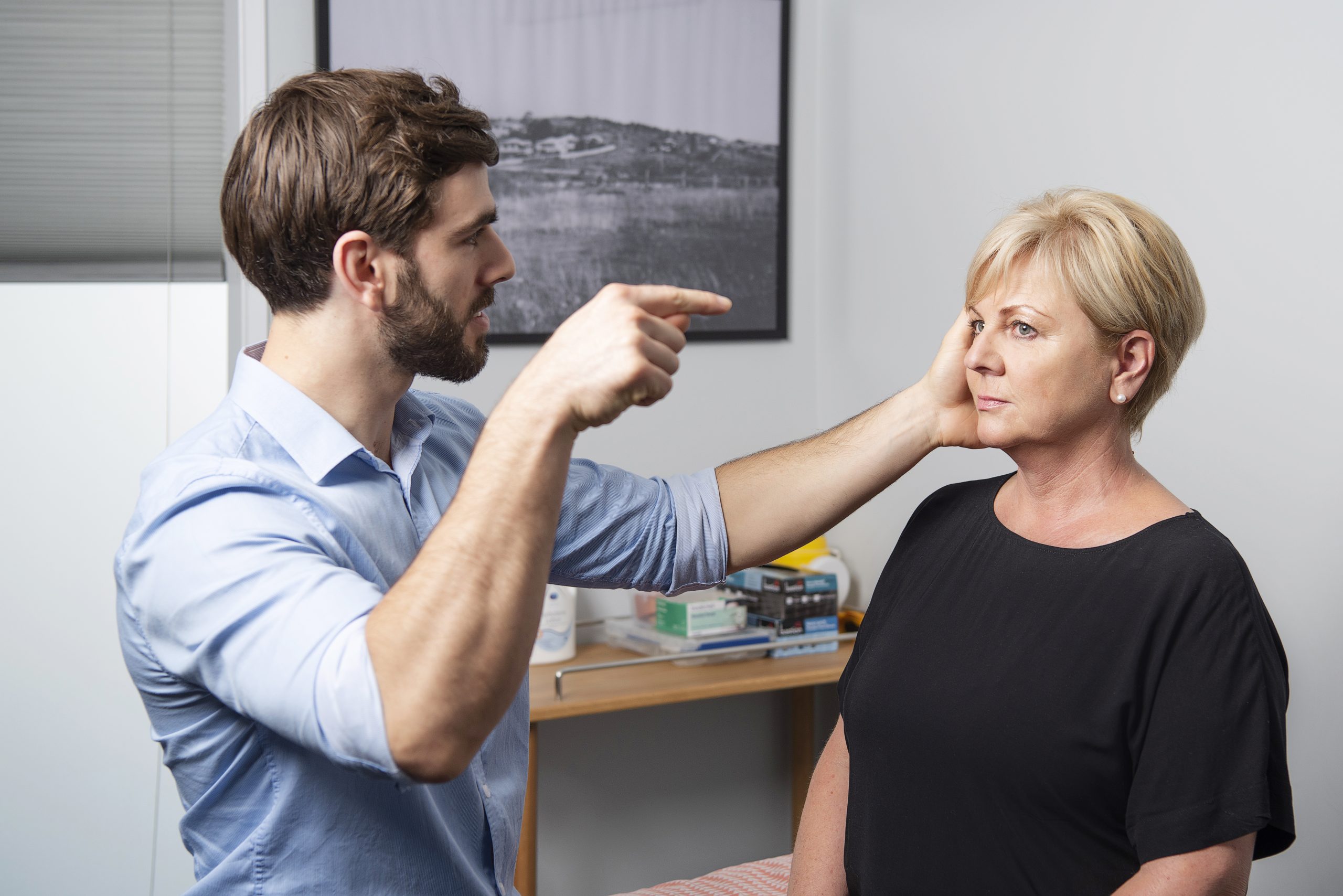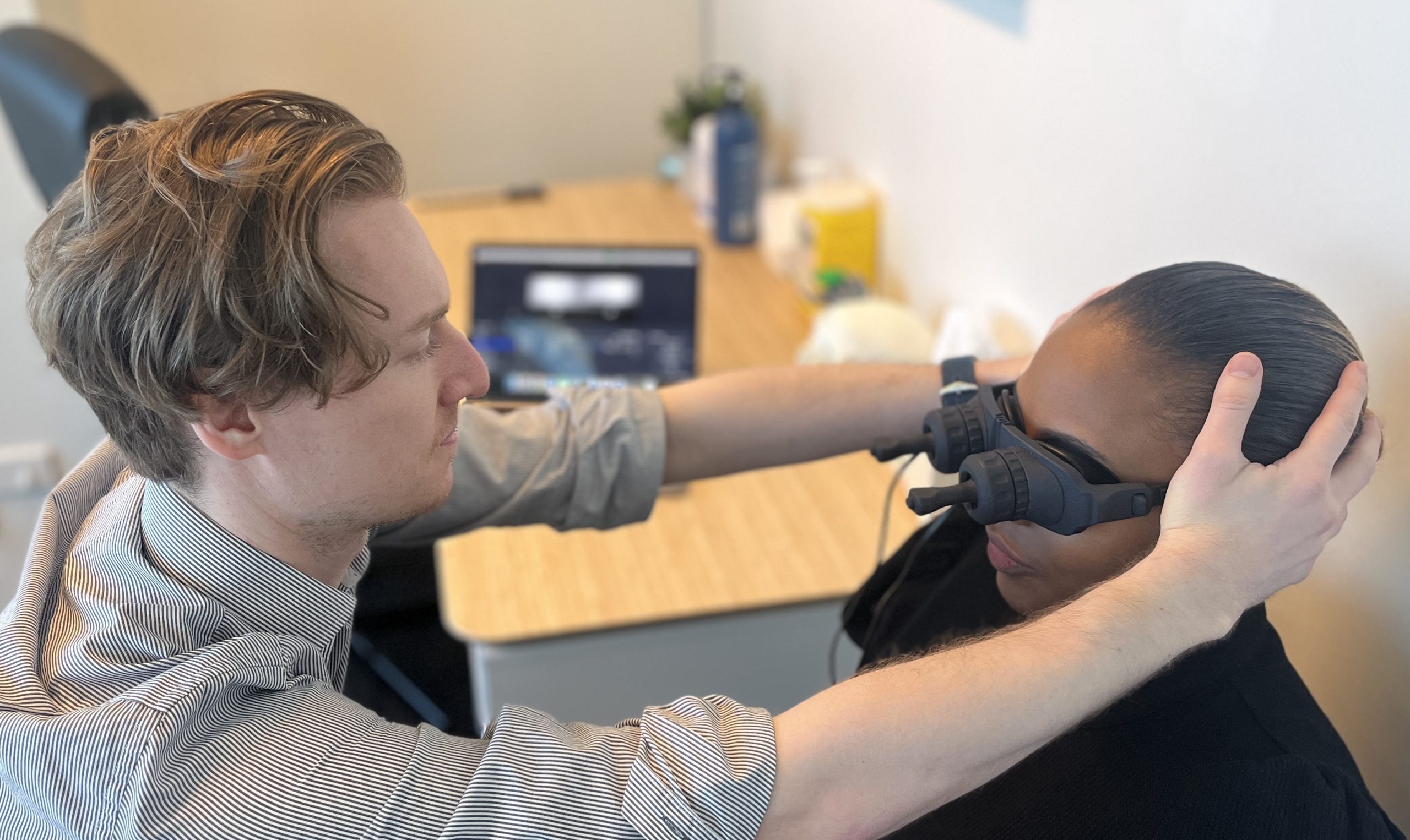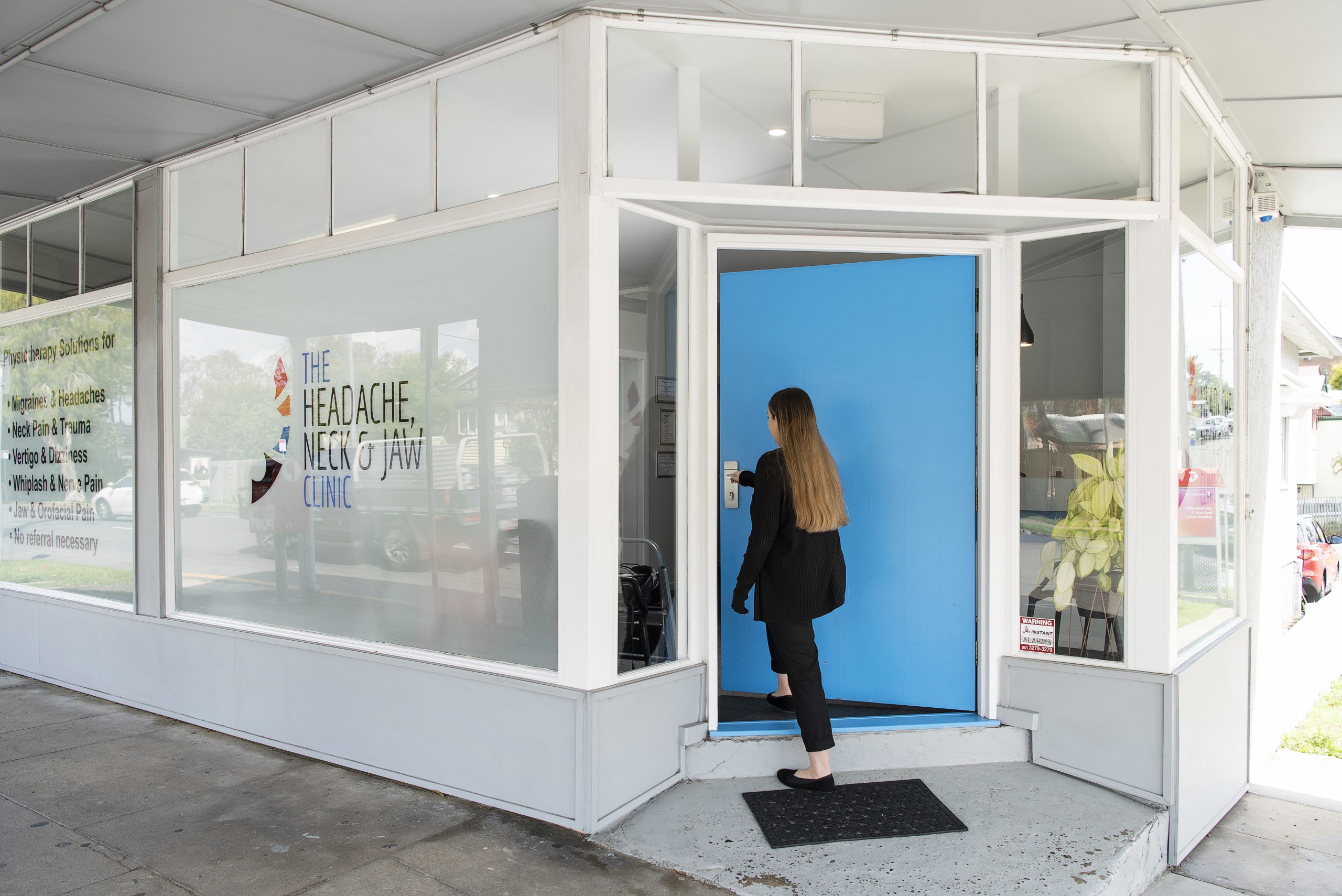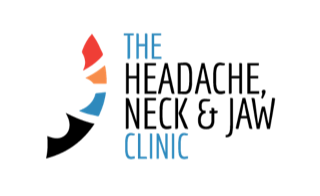Vertigo

Referring a Patient? - Click Here
Vertigo Information
Vertigo is the sensation that either you or the world is rotating. Episodes can last for a few minutes or be constant. Attacks may be associated with specific movements like rolling over in bed, turning to look over your shoulder, looking up or down a flight of stairs, or may take you completely by surprise. You may experience vertigo from the extreme sport of standing upright without moving at all! Vertigo can have a big impact on your function. You may not be able to do things you used to enjoy. It can be overwhelming to concentrate or complete basic tasks when your world is spinning or you feel like you are standing on shifting sand.
Benign paroxysmal positional vertigo (BPPV) is one of the most common causes of vertigo — the sudden sensation that you're spinning or that the inside of your head is spinning.
What are the symptoms of Vertigo?
Other symptoms can include light headedness, feeling faint, headaches, nausea, difficulty concentrating or blurred vision. Sometimes you can feel like you veer off to one side when you walk or struggle to keep your balance.
What are the causes of Vertigo?
There are many causes of vertigo, but problems arise when the three main balance systems in your body are not telling your brain the same information. These 3 systems are the balance organs in the inner ear (called the vestibular system), the position sensors in your joints and muscles, especially the neck and feet, and your eyes. Dysfunction can occur in one or any combination of these three systems, or in the processing of this information in the brain. These systems can also deteriorate as part of the normal ageing process which adds another challenge.
Headache, Neck & Jaw Conditions We Treat
Our Brisbane clinics specialise in the treatment of head, neck and jaw conditions, many of which are notoriously difficult to treat. If you’re experiencing symptoms of any of the following problems, our team has the expertise and training to help.
Headaches
Migraines
Jaw and Orofacial Pain
Neck Pain and Trauma
Whiplash and Nerve Pain
Vertigo & Dizziness
Tinnitus
Singing / Vocal
Therapy
Book an Appointment
If you’re experiencing pain or discomfort then don’t put it off - contact our friendly team today to make an appointment with one of our expert physiotherapists.
What is the Vestibular System?
The vestibular system is made up of 3 semi-circular canals in each ear that are filled with fluid. Tiny hairs inside these canals sense when this fluid shifts as you move your head and tell your brain whether you are upright or tipped at angle. The most common dysfunction is BPPV (Benign Paroxysmal Positional Vertigo). In this disorder, microscopic crystals in the canals of the vestibular system are dislodged through trauma, illness or the normal ageing process. Movement of these crystals in the vestibular system can trick the brain into thinking your head is tilted when your vision is telling you your head is straight resulting in an overwhelmed, spinning sensation.
More complex dysfunction includes complete loss of function in one or both of the inner ears. Fortunately, the brain can be trained to compensate for complete loss of function in this vestibular system by strengthening the use of vision and/or good postural awareness of the head and neck alignment. Other factors include vestibular migraines and the high association between headaches, migraines and vertigo.
How can The Headache, Neck & Jaw Clinic help me with Vertigo?
Here at The Headache, Neck & Jaw Clinic, our physiotherapists are trained to assess and treat dysfunction of the vestibular system and your balance. You don’t need a referral and our clinicians also screen for more serious causes of vertigo such as Meniere’s disease, or vestibular neuritis. We will refer you to a GP if you need to undertake further testing such as CT scans or blood tests. We also assess your posture and any neck or migraine issues you may experience.
Treatment involves Vestibular rehabilitation therapy to treat primary and secondary causes of vertigo. It is an exercise based program combined with mobilisation of the head and body to correct deficiencies within the vestibular system and strengthen the processing of balance information in the brain.

Vesticam goggles for Vertigo assessment
Vesticam goggles are a type of infrared goggles that can help a vestibular physiotherapist to determine whether the problem is related to your inner ear (vestibular system) or brain (central nervous system). These goggles enable a physiotherapist to record eye movement during a range of vestibular tests and help provide a more accurate and efficient diagnosis. Learn more about how the Headache Neck and Jaw Clinic uses vesticam googles in the assessment of vertigo.
How We Use Vesticam Goggles
Senior Associate Physiotherapist Boyd Fleming explains how we use Vesticam goggles in the diagnosis and treatment of BBPV.
Book Your Appointment Now!
Get in touch with us today for more information on our services or to make an appointment with our friendly team.

